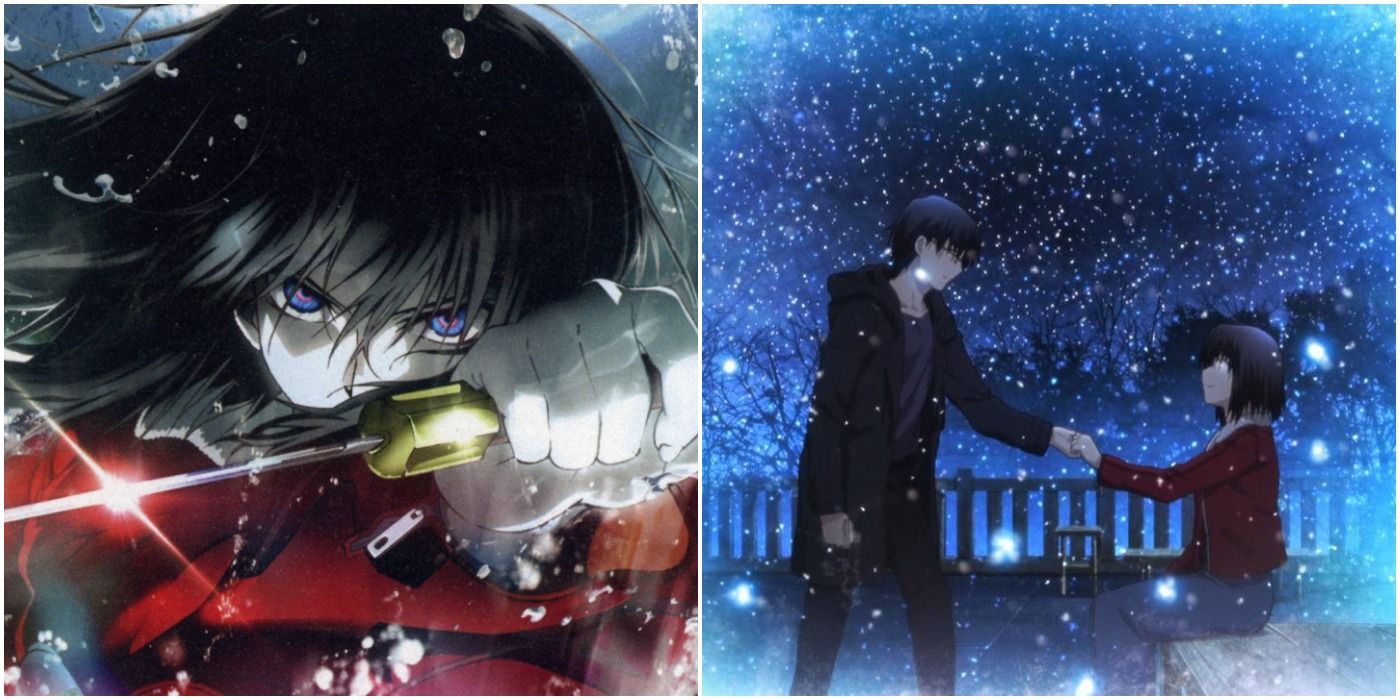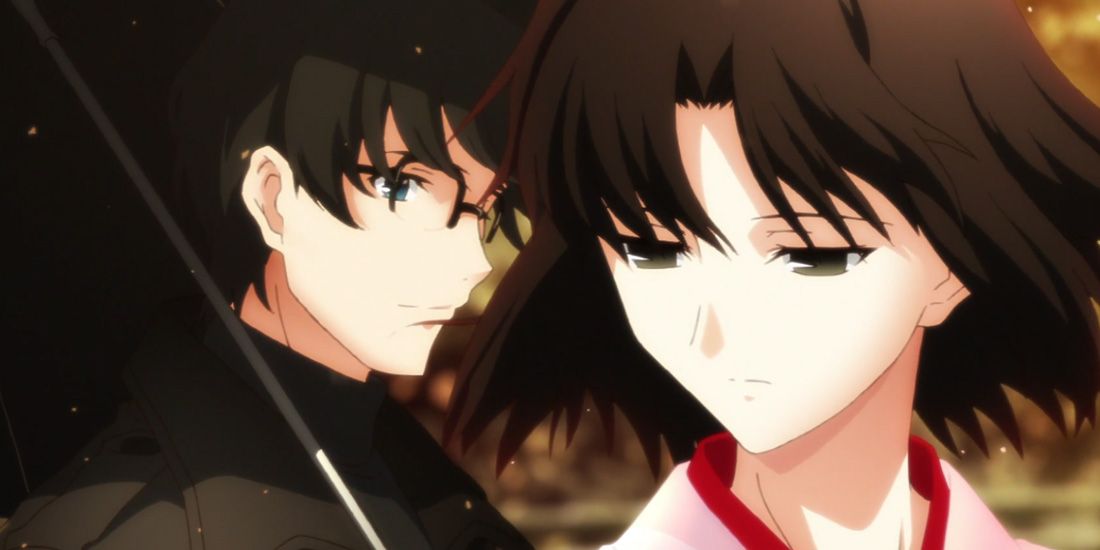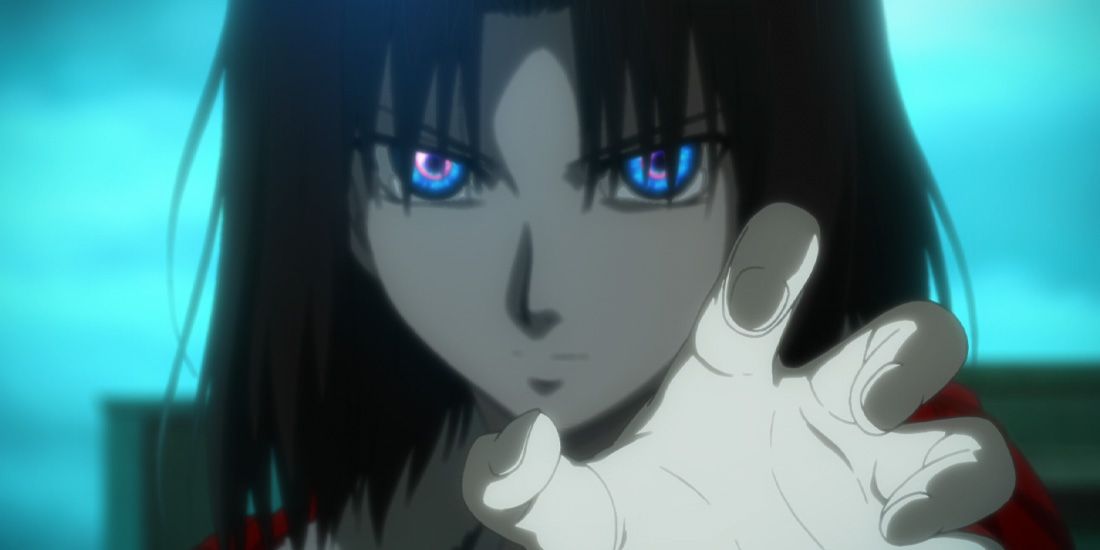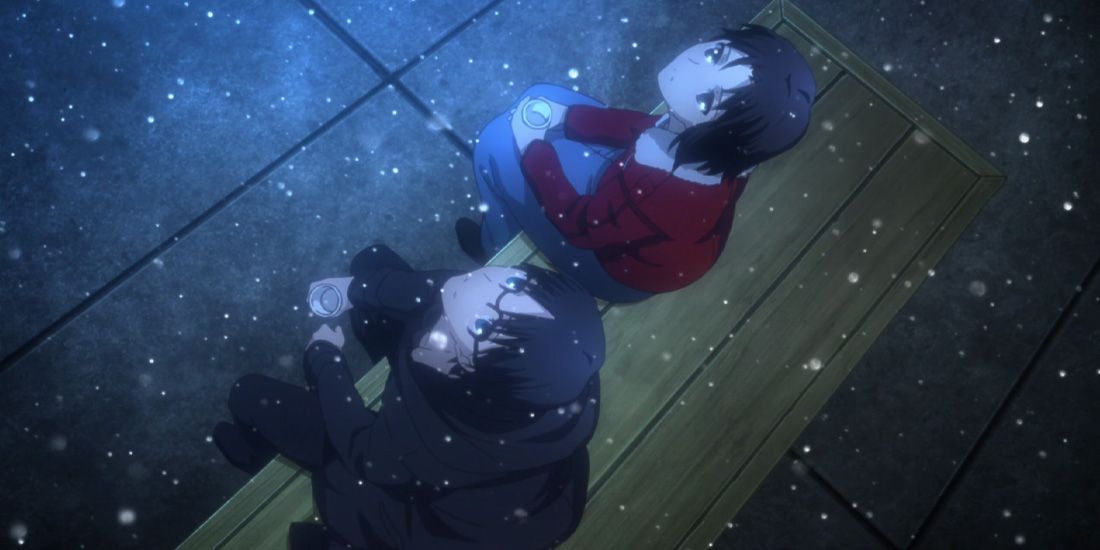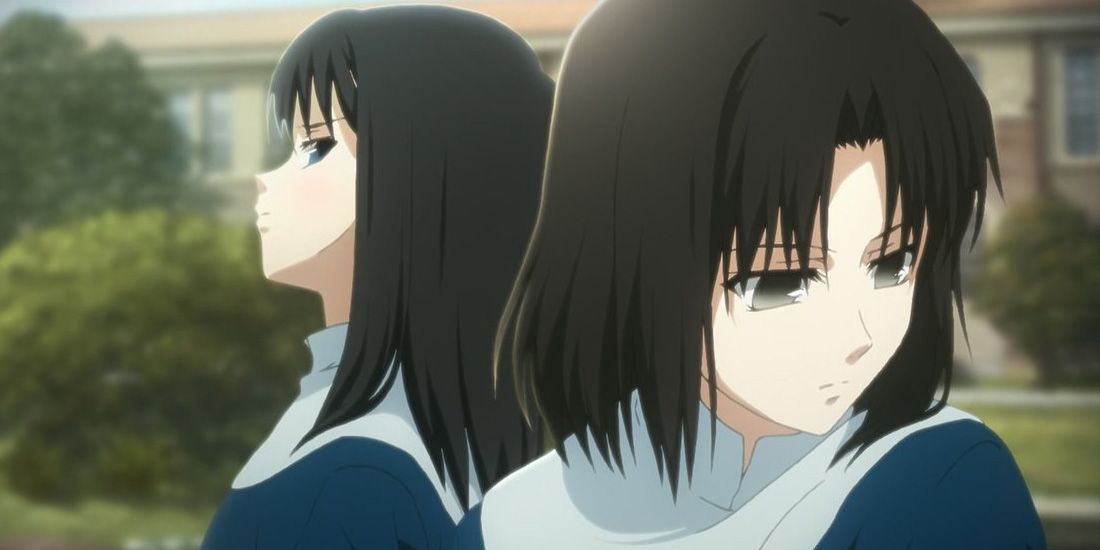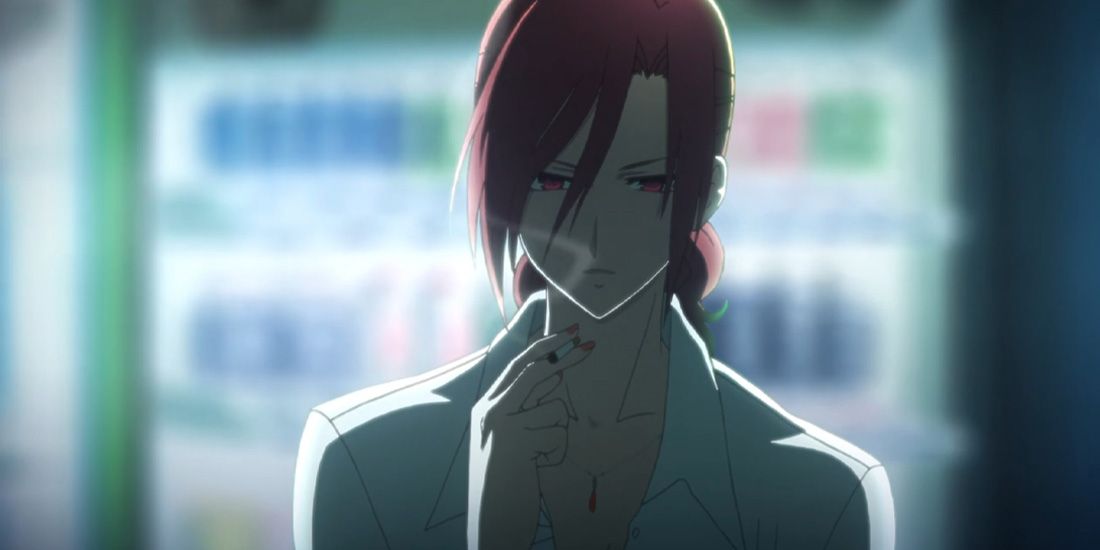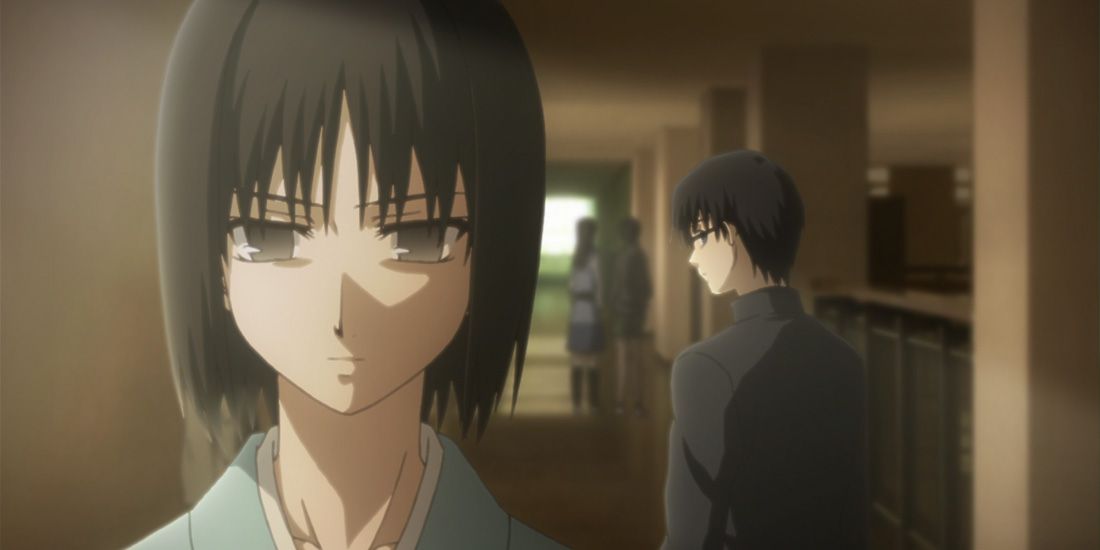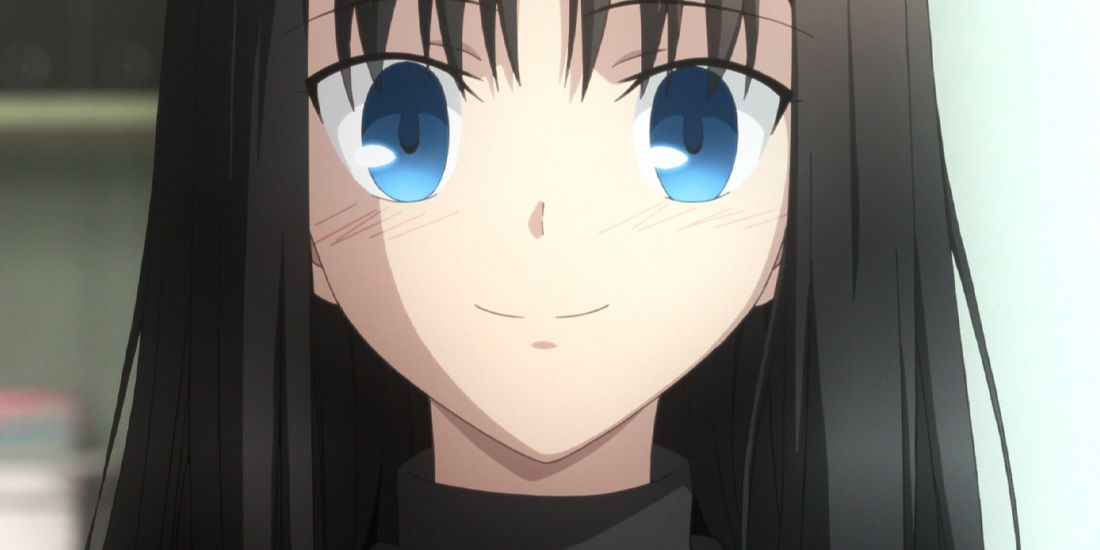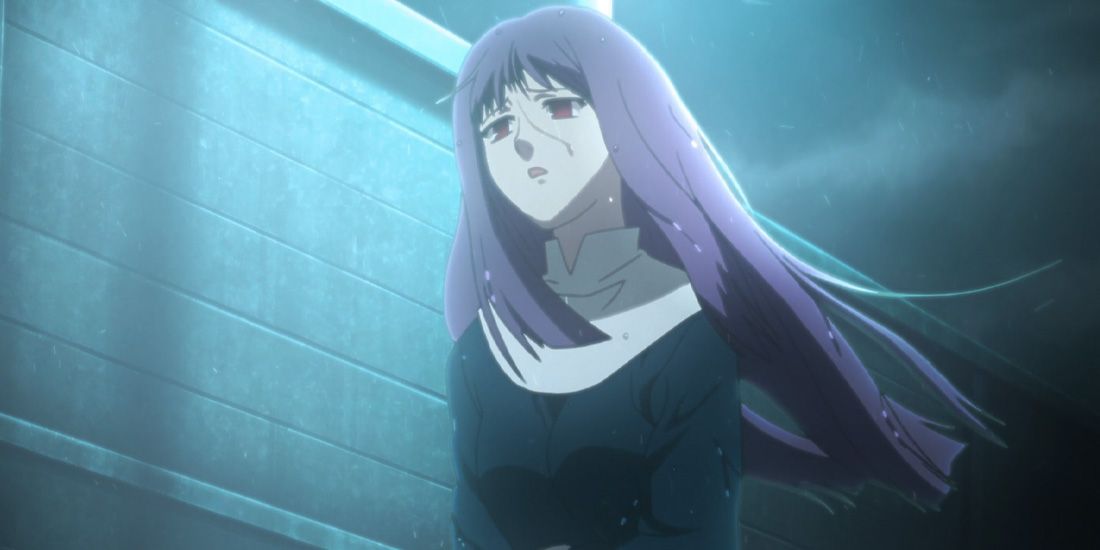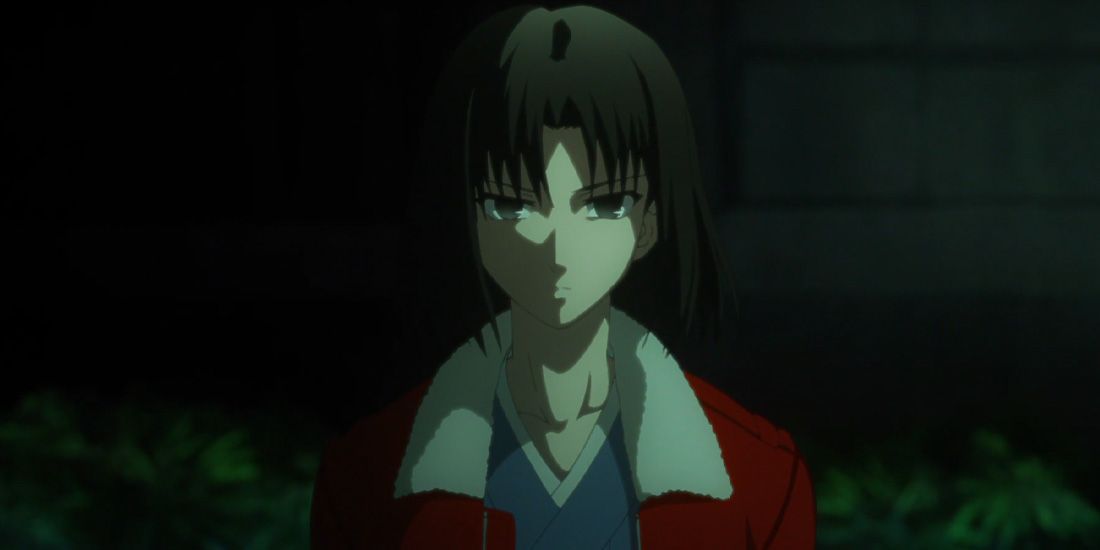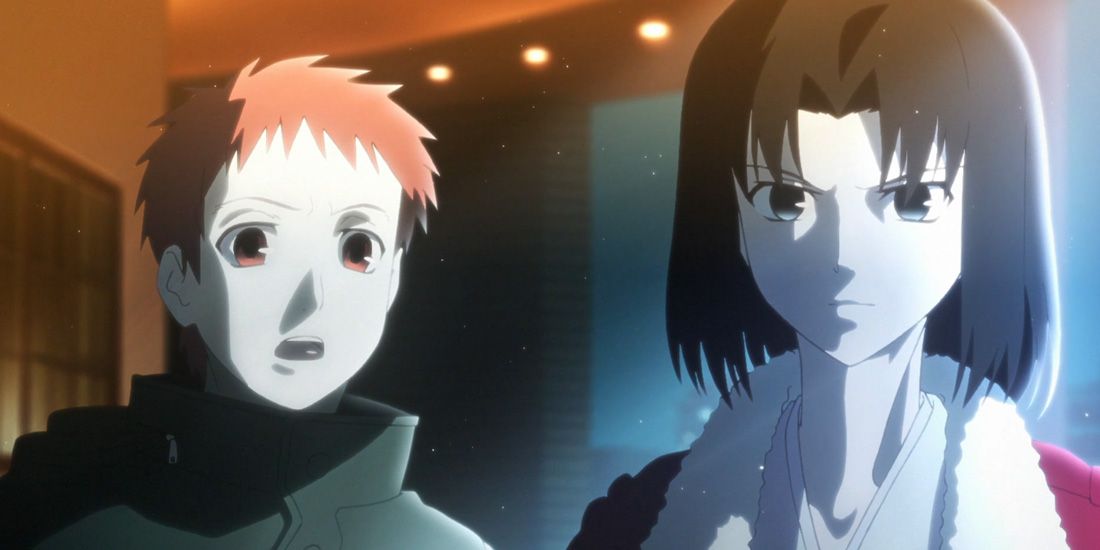Debuting as a Type-Moon light novel series penned by Kinoko Nasu with illustrations by Takashi Takeuchi, The Garden of Sinners was eventually adapted into an anime film series by Ufotable. Going by Kara no Kyoukai in Japan, the main premise revolves around the relationship between Shiki Ryougi and Mikiya Kokutou, and covers from their days as students to their time as paranormal investigators. That said, such a summary does a disservice to The Garden of Sinners' ambition, complexity, and non-linear storytelling.
Over the course of eight movies, an OVA, and a short film, The Garden of Sinners weaves a challenging tapestry of identity, murder, depression, and philosophy. Individually, only a handful of the releases touch greatness; as a whole, Kara no Kyoukai is brilliant. Even though the series' whole is greater than the sum of its parts, there are still some entries that are far better than others.
10 Epilogue (OVA)
Released after The Garden of Sinners' main story was completed, 2011's Epilogue OVA introduces Shiki's "True Nature," the being in the middle between the character's male and female personalities. Throughout the course of the series, Shiki is constantly struggling with her identity, as she attempts to fight her urge to kill.
While the series never prioritizes realistic dialogue, opting for stylistic discourse instead, Epilogue is the only entry that, at times, feels like a philosophy lecture. The visuals are naturally gorgeous and the OVA's exploration of the concept of personality is fascinating, but Epilogue's endless monologues are tiring.
9 Overlooking View (Movie 1)
Perhaps the most controversial entry, Overlooking View is The Garden of Sinners' first movie, although, chronologically, it is the fifth. Consequently, Overlooking View improves greatly on a second viewing; however, it does not leave a particularly great first impression. The animation and music are just as perfect as the movies that follow, but Overlooking View does not attempt to introduce the characters or establish the world's rules.
Along with thought-provoking, powerful, and unsettling, The Garden of Sinners can also be described as pretentious, an adjective that defines the first movie. Overlooking View represents this series at its most unapproachable.
8 Extra Chorus (Short Film)
The anime's final release, Extra Chorus, is the series' most inconsequential entry. After an introductory segment revolving around Shiki taking care of Mikiya's cat for a couple of days, this short shifts to an unlikely meeting between a girl grieving over her friend's suicide, an act she played a part in instigating, and Fujino Asagami, a character featured prominently in the third movie. The final segment reverts back to Shiki and Mikiya, ending their time on screen in a rather touching moment.
Extra Chorus showcases a playfulness that is absent in most of the other movies. The only exception is the middle segment, which tackles mature themes while bringing some closure to Fujino's story.
7 Oblivion Recording (Movie 6)
Sandwiched between the two darkest entries in the franchise, Oblivion Recording feels like an adventure separate from the rest of the series. Not only does it feature a mostly self-contained storyline, something practically unheard of in The Garden of Sinners' earlier chapters, but it also promotes Mikiya's sister, Azaka, to the role of the protagonist. This movie is also set in the perpetually sunny Reien Girls' Academy, a significant departure from the neo-noir aesthetic associated with the series.
Oblivion Recording adds some depth to Azaka, a character who would have otherwise been known as just the passive-aggressive sibling with a thing for her brother. Unfortunately, Azaka is still not an especially likable or interesting protagonist. Oblivion Recording explores the way a person's existence is defined by the memories of others and also touches upon drug addiction, albeit in a way that is quite shallow by The Garden of Sinners' standards.
6 The Hollow Shrine (Movie 4)
The Hollow Shrine is one of the most illuminating entries in the series, even if its presentation mostly consists of unspectacular exposition dumps. Shiki is taken to a hospital after a traffic incident that also "killed" SHIKI, a personality who only knew murder that existed within her. This leaves Shiki feeling empty and alone.
The Hollow Shrine provides some context for Shiki's Mystic Eyes of Death Perception, an ability that allows her to see a person's death lines. The fourth movie also expands upon Touko Aozaki's backstory and role, the owner of the paranormal investigation company that would eventually employ Shiki and Mikiya. While not the most compelling entry on its own, The Hollow Shrine elevates the rest of the chapters.
5 A Study in Murder – Part 1 (Movie 2)
Chronologically, A Study in Murder – Part 1 is the first entry. Consequently, it focuses entirely on the early stages of Mikiya and Shiki's strange relationship. Unlike Overlooking View's heavy focus on its plot, A Study in Murder – Part 1 is devoted to its main characters, and it is all the better for it.
Mikiya's unflinching love for Shiki is quickly established, while the second movie also dives into the theme of duality that would remain a fixture for the rest of the series.
4 Recalled Out Summer (Movie 8)
Also known as Future Gospel and released four years after the seventh movie, Recalled Out Summer is, for the most part, a side-story. A large chunk of the film deals with Shiki investigating a bomber who can predict the immediate future while Mikiya discusses precognition with Shizune Seo, a teenager tormented by her own ability to gaze ahead in time. The last half-hour jumps forward a decade and introduces Shiki and Mikiya's daughter.
While Mikiya's segments bring to a halt Recalled Out Summer's momentum, his talk with Shizune Seo marks one of the better examples of The Garden of Sinners combining complex philosophical concepts with relatable human emotion.
3 Remaining Sense of Pain (Movie 3)
Remaining Sense of Pain will likely determine whether a viewer continues with the series or not. Out of the opening three chapters, the third movie is the first to come close to telling a complete story, at least, compared to the more fragmented entries that surround it. During a brutal assault, Fujino Asagami's inability to feel pain motivates her assailants to get even more violent. However, in the middle of the horrible act, Fujino experiences pain. She then sets out to murder all of them using her telekinetic-esque powers.
The Garden of Sinners touches upon what it means to be human and, more importantly, how someone can lose their humanity. Fujino is a sympathetic character who, after years of feeling less than human due to her inability to feel pain, finally becomes "alive." Remaining Sense of Pain is not an easy watch but it culminates in a wonderful fight and contains many unforgettable moments.
2 A Study In Murder – Part 2 (Movie 7)
There is a significant jump in quality between Remaining Sense of Pain and the series' best two entries, the only movies that are truly feature-length. For all intents and purposes, A Study In Murder – Part 2 was The Garden of Sinners' final chapter in the saga, and the anime series originally ended on a haunting but fitting note.
A Study In Murder – Part 2 connects to most of its predecessors, particularly the second movie that introduces Shiki's two personalities along with a series of murders that seem to be connected to (or perpetuated by) her. The seventh movie brings The Garden of Sinners' themes, storylines, and characters to a satisfying close, albeit one that still leaves a lot of questions unanswered.
1 Paradox Spiral (Movie 5)
Paradox Spiral is The Garden of Sinners' masterpiece and stands head and shoulders above the rest of the series. Rather than centering around Shiki and Mikiya, the fifth movie's protagonist is Tomoe Enjou, a teenager who runs away from home after killing his mother in self-defense. Tomoe and Shiki develop something of a friendship, which eventually leads the two back to the former's residence, "Unit 405 at a condo somewhere." When they arrive at the apartment complex, it does not take Shiki long to notice that something is seriously wrong.
Paradox Spiral tells a dark, twisted tale that features The Garden of Sinners' best antagonist, Touko's most memorable contribution, and a lead character who is realistic, complex, and unforgettable. It also provides plenty of insight into the series' prominent themes, particularly the Yin and Yang dynamic.

